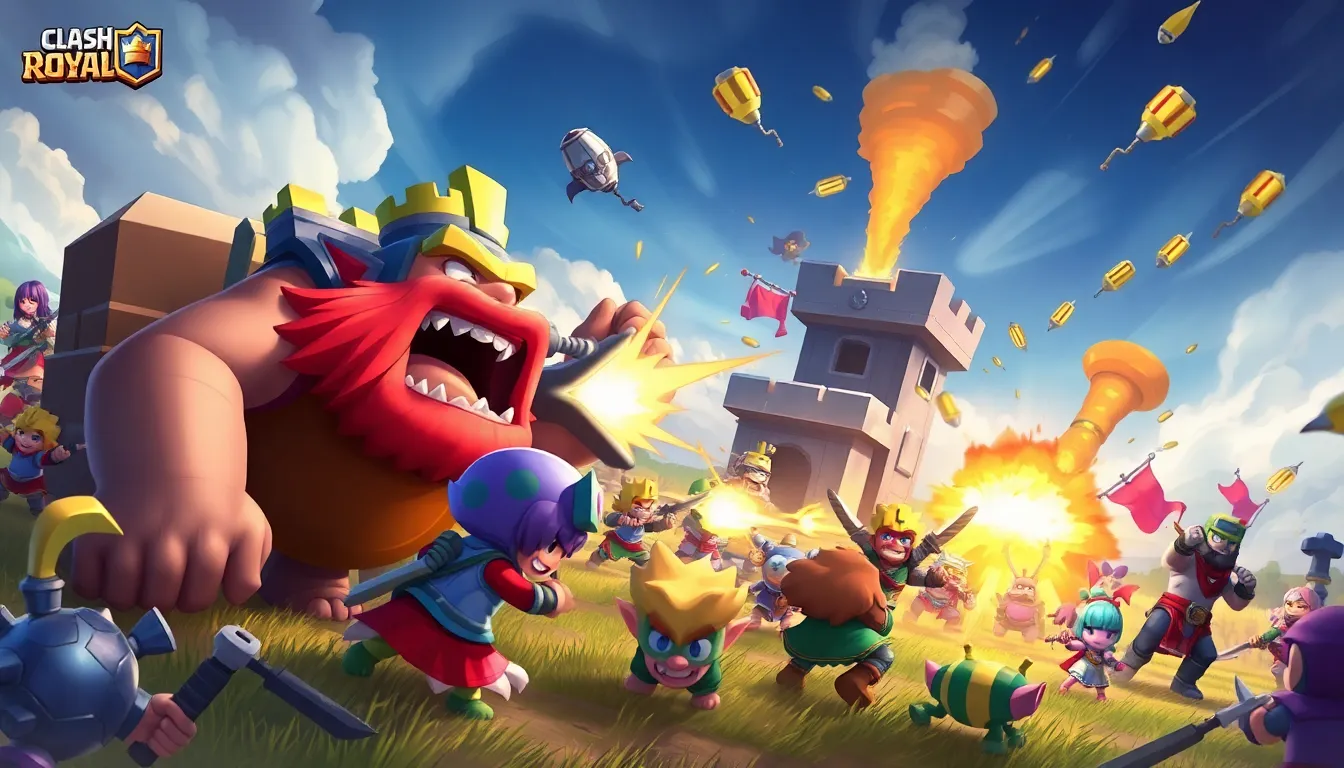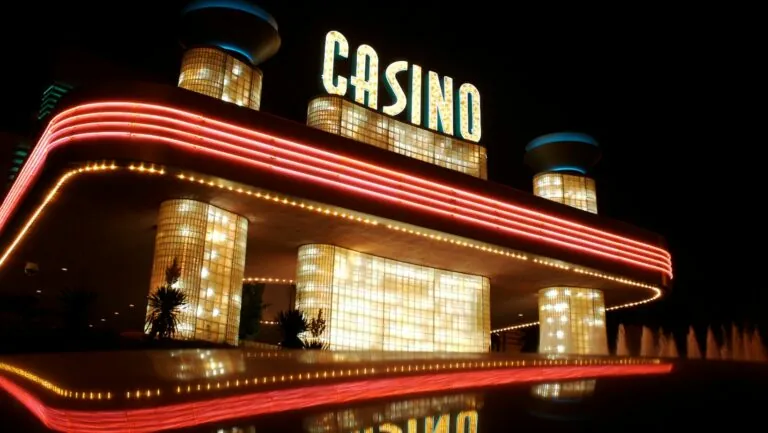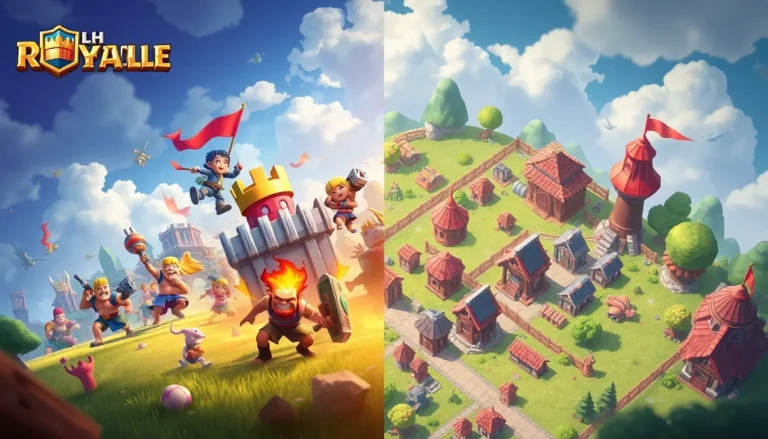In the fast-paced world of Clash Royale, units are the unsung heroes of every epic showdown. Whether it’s a cheeky Goblin darting across the battlefield or a hulking Giant smashing through defenses, each unit brings its own flair and strategy to the game. Understanding these characters isn’t just for the pros; it’s crucial for anyone looking to dominate their opponents and claim that coveted crown.
Table of Contents
ToggleOverview of Clash Royale Units
Clash Royale features a diverse range of units, each with distinct abilities and roles in battle. Players can categorize units as troops, buildings, or spells, each serving a different strategic purpose. Troops come in various types, including melee, ranged, flying, and tank units. Melee units excel in close combat, while ranged units attack from a distance. Flying units navigate over obstacles, making them unique on the battlefield.
Buildings play a crucial role in defense and offense, providing critical support during matches. Some buildings generate troops, while others deal damage to enemy units and towers. Utilizing buildings effectively can control the battlefield and create strategic advantages.
Spells, on the other hand, offer immediate effects that can turn the tide of battle. Damage spells target enemy units or buildings, while support spells provide healing or boost units for enhanced performance. Options like Fireball and Zap can clear paths for advancing troops.
An understanding of unit strengths and weaknesses enhances player strategies. For instance, pairing a tank unit with support troops creates formidable pushes, while strategic building placement can distract and slow down opponents. Selecting the right combination of units suits specific decks and strategies, increasing overall effectiveness.
Players can analyze card levels and elixir costs to determine the best units for their strategies. Keeping track of the current meta informs which units are more effective in competitive play. Balancing units within a deck ensures versatility and adaptability during matches, improving chances of victory.
Types of Clash Royale Units
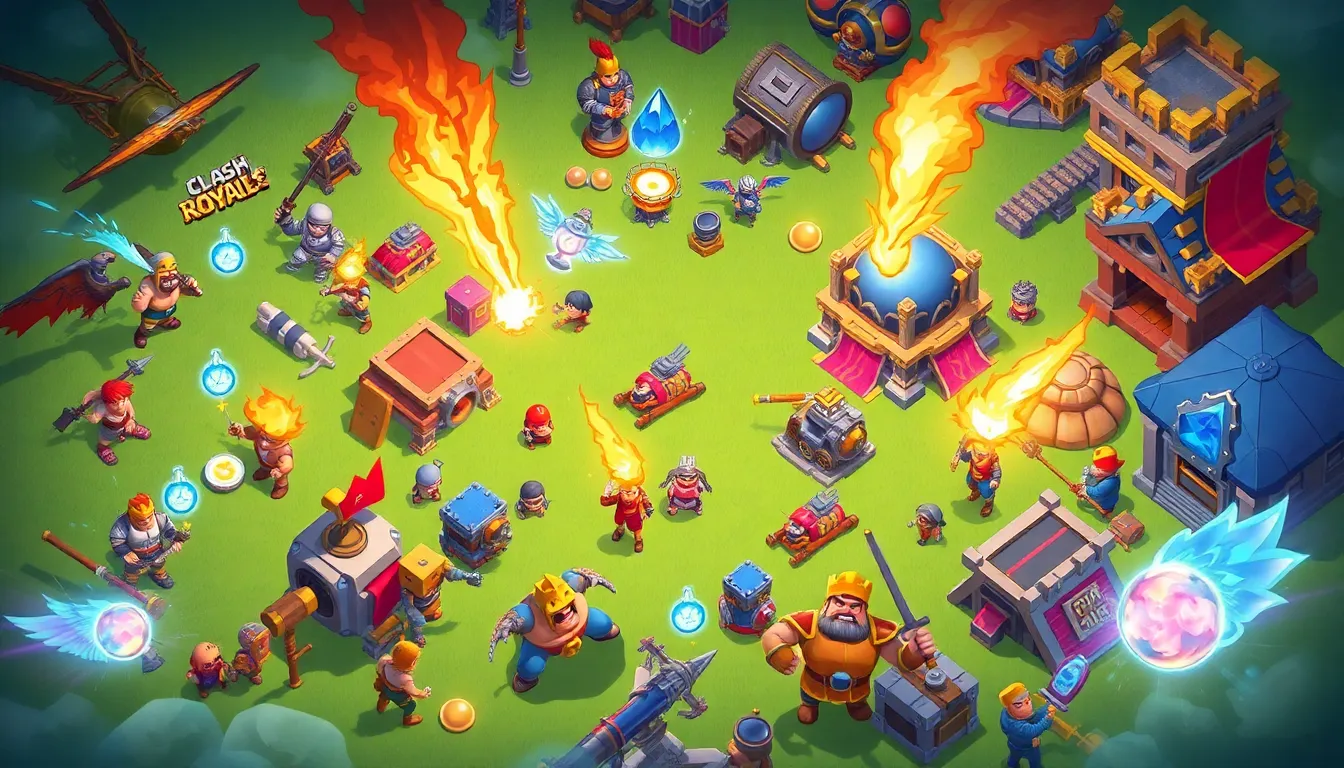
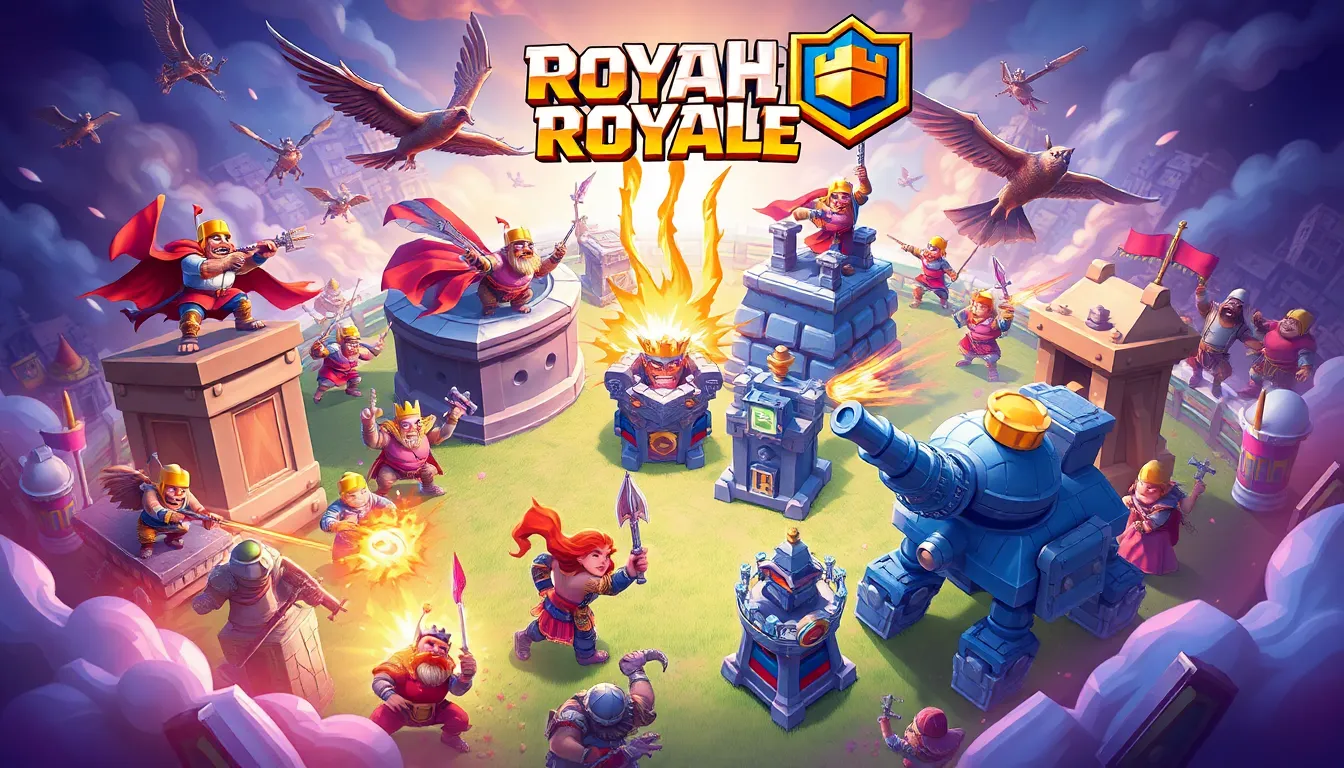
Understanding the types of units in Clash Royale enhances gameplay strategies. Each category serves a specific purpose, contributing to overall tactics.
Troops
Troops represent the backbone of any deck. Units such as melee, ranged, flying, and tank types fulfill different roles on the battlefield. Melee troops engage in close combat, while ranged units attack from a distance. Flying troops navigate around ground defenses, adding strategic versatility. Tanks absorb damage, allowing other units to deal damage safely. Combining different troop types can optimize offensive and defensive strategies, enabling players to counter various threats effectively.
Buildings
Buildings serve dual functions in Clash Royale. They can defend against enemy troops or spawn additional units to bolster a player’s offense. Defensive structures like the Cannon distract and eliminate threats, while buildings such as the Elixir Collector enhance resource generation. Strategic placement of buildings creates advantageous positions, controlling enemy movements and protecting vital towers. Successfully integrating buildings into a deck can prepare players for enemy tactics and support troop deployment.
Spells
Spells offer immediate impact on gameplay. Offensive spells, like Fireball, deal area damage and can finish off weakened troops or structures. Meanwhile, defensive spells, such as Tornado, disrupt enemy troop formations and can funnel opponents into a disadvantageous position. Utilizing spells effectively can change the momentum of a match, turning the tide in critical moments. Players who master spell timing and placement gain significant advantages in battles and enhance overall deck performance.
Troop Cards Analysis
Understanding troop cards in Clash Royale enhances strategic gameplay. Each category features distinct strengths and roles within a player’s deck.
Common Troops
Common troops serve as the backbone of many strategies. Their low elixir cost allows for quick deployment, making them ideal for pressure tactics. Cards like the Knight and Skeletons provide effective frontline support. Players often use common troops to cycle through their decks rapidly. Versatility in abilities ensures they fit various strategies, whether for offense or defense.
Rare Troops
Rare troops offer enhanced abilities and higher stats than common counterparts. Cards like the Valkyrie excel at area damage, clearing swarms effectively. Rare troops typically cost more elixir, but they significantly improve deck synergy. They often balance offense and defense, adapting well to different situations. Players frequently utilize rare troops to create powerful combinations with common units.
Epic Troops
Epic troops bring unique strengths that can turn the tide of battle. Cards such as the Baby Dragon provide splash damage while flying, making them hard to counter. High elixir costs typically accompany these units, so players must deploy them strategically. Epic troops shine in controlling the battlefield and forcing opponents to respond. Effective use of epic troops can lead to overwhelming pressure on enemy towers.
Legendary Troops
Legendary troops represent the pinnacle of troop card power. Cards like the Mega Minion and Electro Wizard offer exceptional abilities and versatility. Their rare status makes them challenging to acquire, resulting in significant deck impact. Players using legendary troops gain unique tactical advantages over opponents. The high elixir costs associated with these units emphasize the importance of timing and positioning in gameplay.
Building Cards Analysis
Building cards in Clash Royale significantly impact the dynamics of each match. Understanding their strategic roles in both defense and offense enhances gameplay.
Defensive Buildings
Defensive buildings serve to protect towers and hinder enemy advances. The Cannon, for example, effectively distracts ground-based units, allowing for time to counter. Another excellent option is the Inferno Tower; it provides scaling damage, particularly against high-health troops like tanks. These buildings create tactical zones, forcing opponents to adapt their strategies. Proper placement can control enemy movements while maintaining pressure on the battlefield. Players often pair defensive buildings with troops to fortify their defenses, ensuring minimal damage during enemy pushes.
Offensive Buildings
Offensive buildings can shift the tide of battle by generating continuous threats. The Elixir Collector stands out as a key asset; it provides vital resources over time, enabling costly troop deployments. The Furnace also serves a unique role, summoning Fire Spirits that pressure opponents while acting as a defensive structure. Players leverage these buildings to force opponents into unfavorable positions. Emphasizing timing and placement allows for maximum benefit from these offensive options. Building strategies should consider synergy with troop cards to optimize overall deck performance.
Spell Cards Analysis
Spell cards play a crucial role in altering the outcome of battles in Clash Royale. Understanding their classifications can maximize their effectiveness during gameplay.
Damage Spells
Damage spells deliver impactful area or single-target effects. Fireball inflicts significant area damage, allowing players to eliminate groups of weakened troops or deal damage to buildings. Rocket targets a single unit or structure for massive damage. Lightning excels in taking out high-hitpoint troops. Spells like Poison provide ongoing damage over time and control enemy movements. Effective timing in deploying damage spells can turn the tide in skirmishes, allowing players to capitalize on enemy troop placements and create advantageous situations.
Control Spells
Control spells influence enemy troop positioning or effectiveness. Tornado groups together enemy troops, making them vulnerable to splash damage. Freeze immobilizes opponents’ troops and buildings, giving a strategic window for attackers to push. Zap resets the charge of attacking units and deals minor damage, useful for quickly dispatching low-hitpoint enemies. The use of control spells often disrupts enemy strategies, forcing them to re-evaluate their placements and tactics. Mastering these spells contributes to a dynamic approach in battles by manipulating the flow of combat.
Utility Spells
Utility spells provide tactical advantages and resource benefits. Heal restores health to nearby troops, prolonging their presence on the battlefield. Barbarian Barrel serves dual purposes by dealing damage while providing distractions with spawn troops. Goblin Gang, though categorized as a troop card, also demonstrates utility by providing swarm pressure when deployed correctly. Players should consider synergy between utility spells and other cards. Implementing these spells strategically enhances overall deck performance and can lead to decisive victories in challenging matches.

